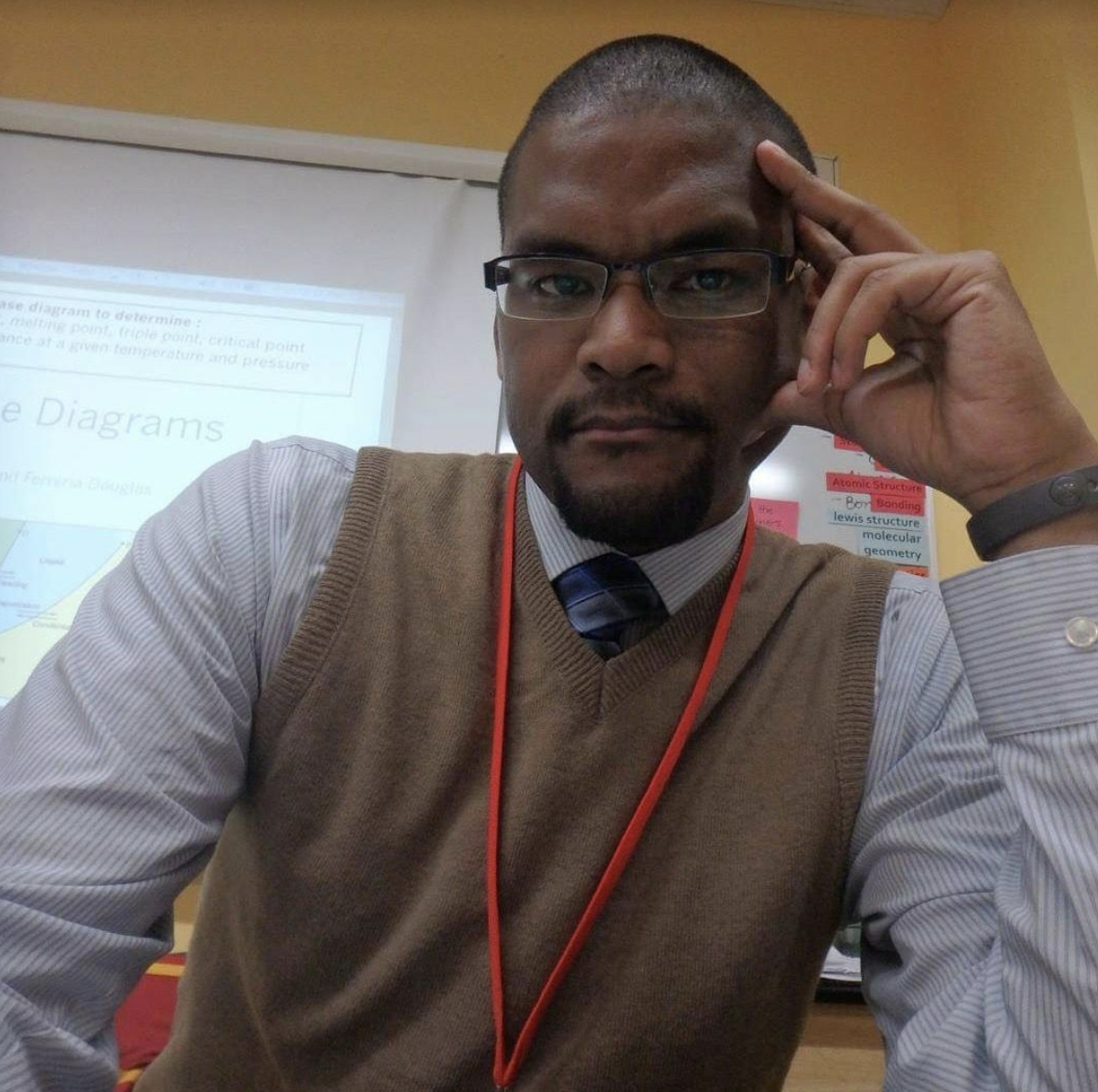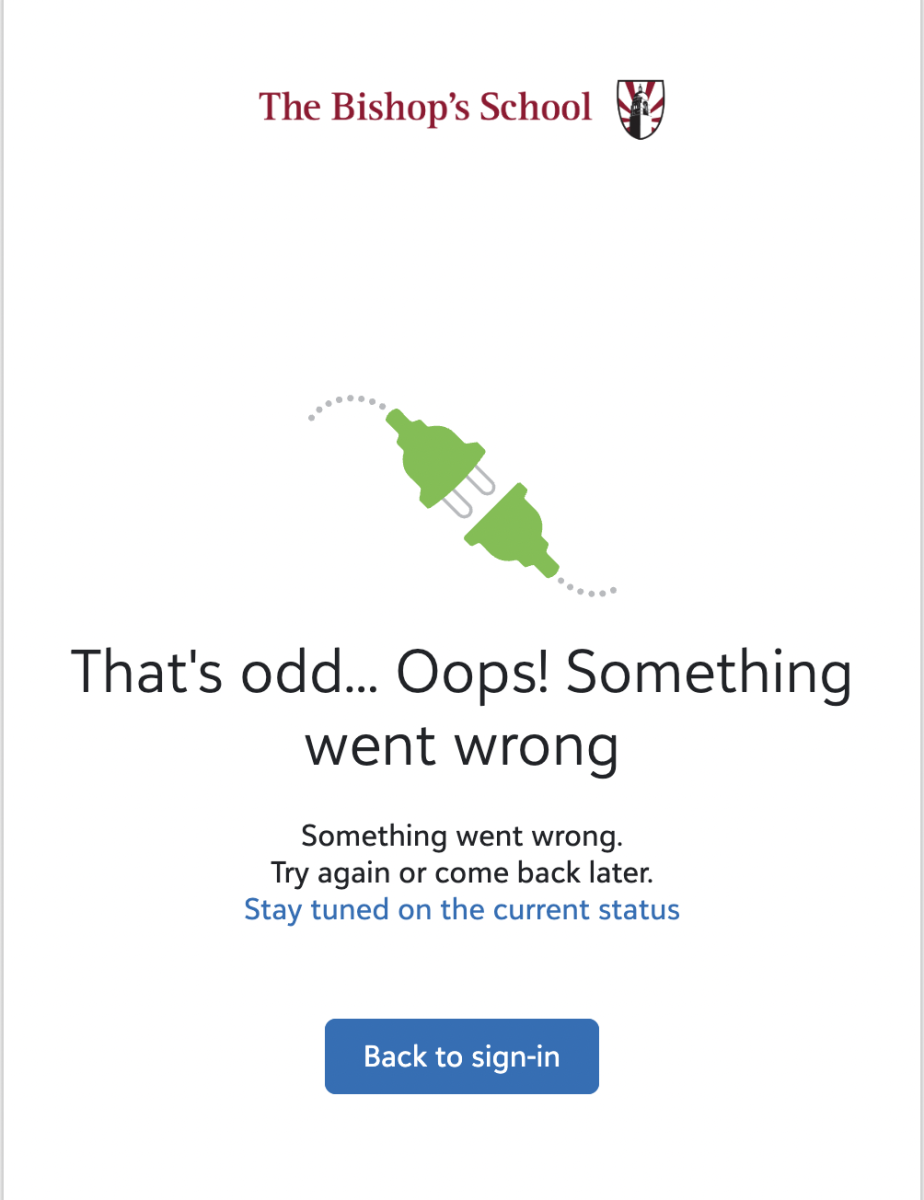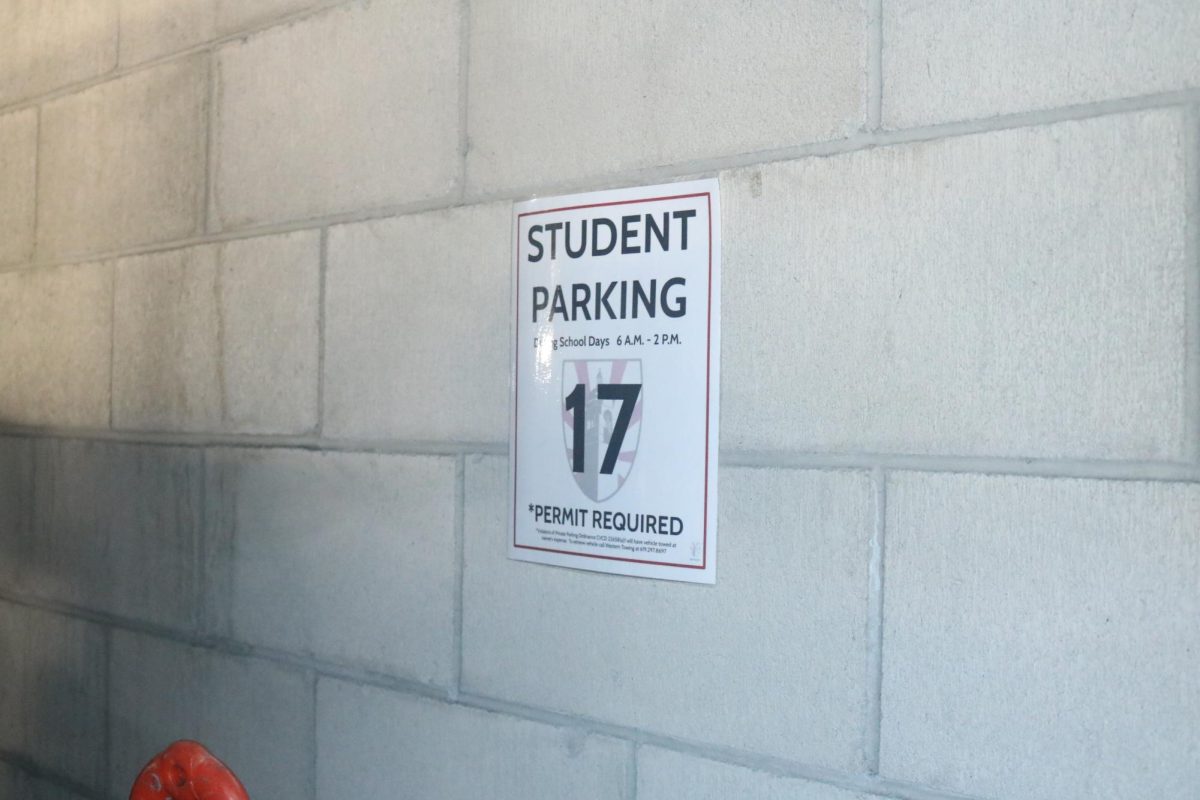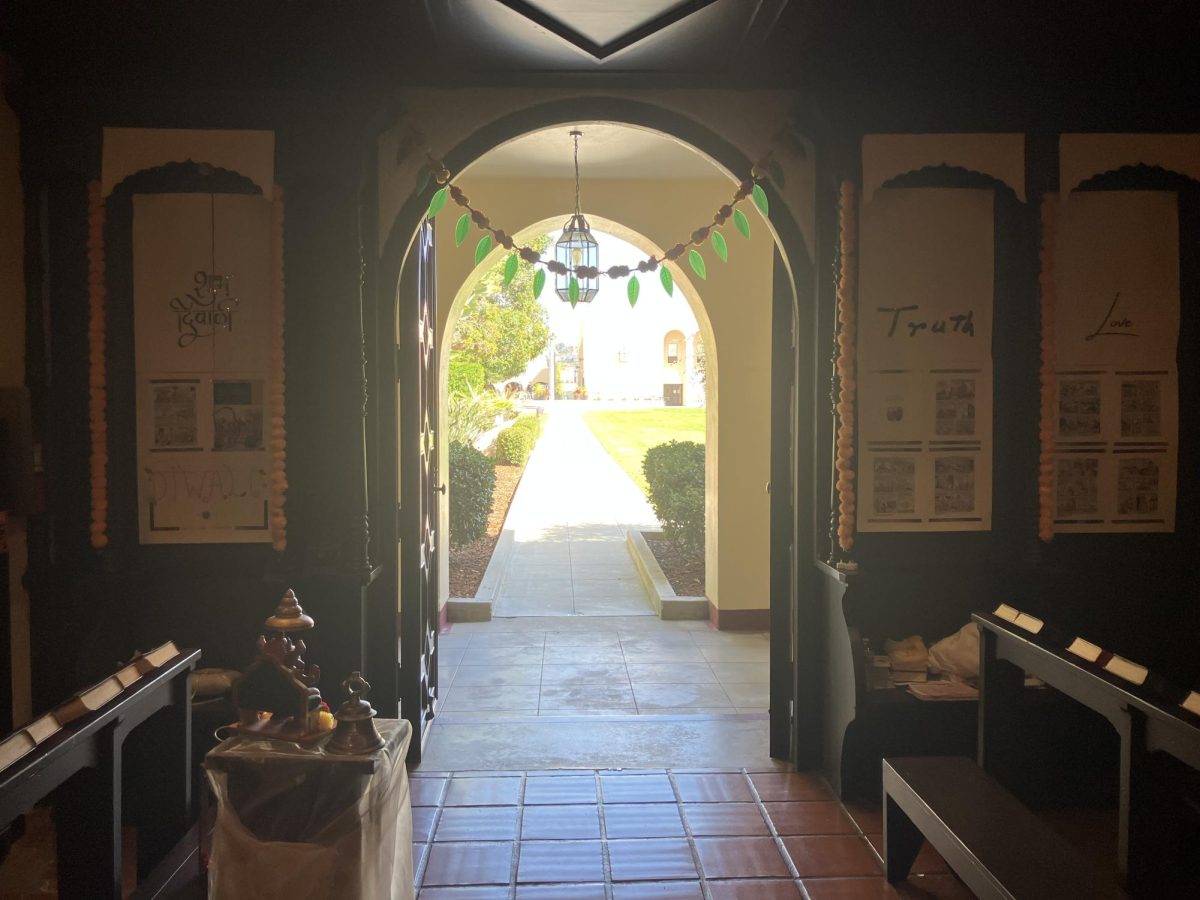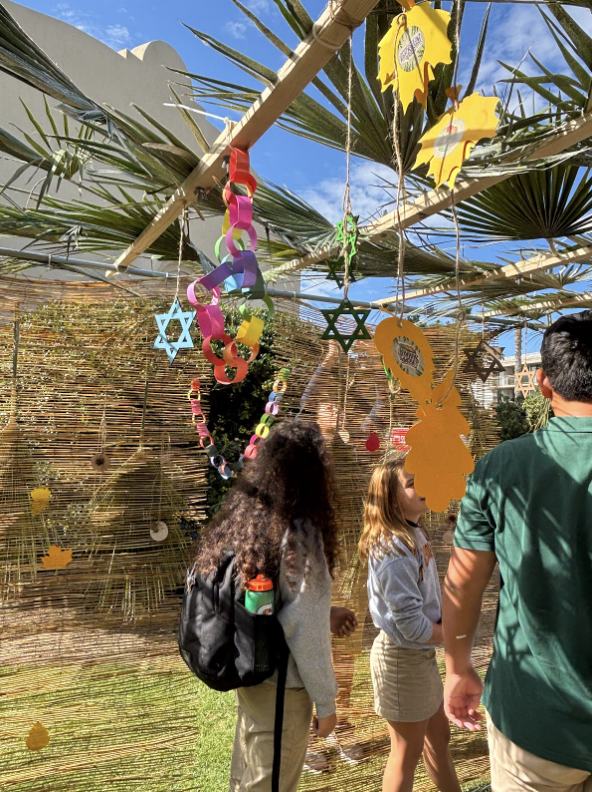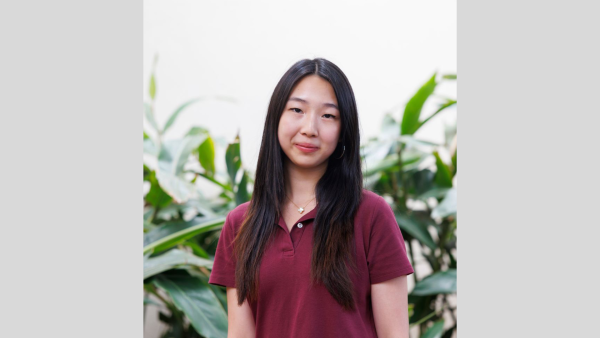You might have seen Mr. Douglas around school these past few weeks; happily grabbing lunch, talking to students, or photographing fun moments during all school assemblies. Mr. Douglas is an outgoing and cheerful new teacher who loves to help others — in any way he can. From his previous jobs including inventing new flavors of beef jerky and Pepsi, coordinating and designing firework displays, to his various hobbies such as playing tennis and writing poetry, Mr. Douglas is such an interesting and fun person to talk to!
Q: What do you teach and why?
A: I teach chemistry here at Bishop’s! When I ask people about chemistry, people actually don’t know that much about it, or some people don’t like it as much. When I talk to older adults, a lot of times chemistry is the class that they struggled with. And I feel that, I tell my students all the time that if they struggle in chemistry, just remember that I got all D’s in chemistry and so it can take some time before they begin to master it. I hope that it’s challenging, but what I also hope is not to make people fall in love with chemistry, that’s not my goal, but what I hope is that by the end of the day you can understand why I love chemistry. Chemistry is the first class where everything that I learned seemed to be a part of this grand picture. The periodic table has a bunch of elements on it, but what I hope that students learn as the year goes on, is it’s more than just elements. If you understand how it’s designed, you can become very powerful, and you can see things differently in the world.
It’s the first class where I took something and I felt like I could apply it to my everyday life. When someone asks me why I love science or teaching science, that is what it is.: the power to be able to change people’s lives and I want to inspire [my high school students].
Q: Was science always your favorite subject growing up?
A: I think so, when I think about science and why it’s so easy for me to get drawn to it is because I’m someone who just loves to learn. And I’m someone who has a lot of questions about the world, and I feel like to me, science is literally just someone who had a question, and then they went and tried to answer it. The scientific method, the idea that you ask the question, you do research, you do an experiment, gather some data and observations, and then you make a conclusion. That to me is what I think life is about. Science is incorporated into life in so many ways, it’s something that I’ve always been fascinated by.
Q: What made you decide to come to Bishop’s?
A: So last year, I was teaching in Boston, and David Thompson Jr is in the same Harvard program that I’m in, and he spent the entire year kind of getting to know my approach to teaching. He said, “hey, I really think that there’s a school in California that would really like your student-centered approach, and I think that if you were open to coming into a school where I teach, I think that you could benefit from it. And Bishop’s happens to have a chemistry position open, so I think you should apply.” And so he kind of got the ball rolling, just thinking about that type of thing. Since I’m in a masters program, it’s something that I’ve actually been thinking about, as to where I might be teaching next, and so I thought that, yeah! Apply, and we’ll take it from there! We’ll see if an opportunity rises. I was looking for a new opportunity; I don’t know if I was really thinking about moving out of my state, but the more I thought about it the more I began to really open myself up to the possibility on the west coast. I’m originally from Seattle, my family’s from Seattle, and they were very much intrigued by the idea that we would be living on the same coastline, and that was a big part of it.
Q: What was your first impression walking in?
A: When I came to the school, I was just impressed. The level of community that I think the school has, it’s not like other schools, both amongst the students and the teachers too. The teachers have a very large amount of collaboration built into their culture and I really enjoy that, it’s a nice positive environment. It was a really good first impression.
I think the school is really impressive in terms of the infrastructure that they have here, buildings; I sometimes wonder if students at this school know or understand how this school is significantly different from some of the other schools that you might go to. I think about the simple things like milk break or I think about things like having this lunch. Most people don’t like their lunches, when I talk to students, but at this school we have lunches that I would probably pay for.
I don’t know if students understand the benefits that their teachers have as well; at this school I can print in color as many times as I want, there’s no limit to the amount of resources that I am able to tap into. That seems like a small thing to be able to print in color, but most places don’t have that ability. There’s just so many different resources that they have available here, like the printing space, that make it a really welcoming place, and as a teacher, it really helps you think about all the different possibilities.
When you look at the students, the students are all really respectful, and if there is one thing that I think is common about all of the students that are here, is their focus on education. There are certain things that might affect a student’s performance in a class, but their focus on education, I think is a strength and shock.
Q: If you weren’t a teacher what do you think your job would be?
A: I feel like I would be a psychiatrist. What led me to teaching is a love of just wanting to help people. Who am I? I think that I’m a person that just wants to help people, and psychiatry, that’s what they like to do, they listen. I also think I’m a pretty big listener. Teaching for me combines all of the things that I love. It combines helping people, knowledge of chemistry and science and applying it, it combines all those things into one singular job, which is not why I chose teaching but it’s definitely something that I really enjoy.
Q: What are some of your hobbies?
A: My favorite thing that I like to do is probably play tennis, I enjoy doing that. You would think I would be a better tennis player based off of that statement …I’m not…. but I enjoy it.
Photography is a big thing for me, a lot of students will know me as a person who loves to document moments. I think anytime you experience something, the question is how do we communicate that experience to other people, how do we share that feeling with someone else? Part of that is photography; I’ve been doing photography since I was 12, and so that’s a big part of what I love to do.
I also really like poetry; what I would tell students is if they ever want to, I would love it if you came and gave me a prompt for poetry. I love writing poems, and then I love performing them to people. If you give me a poem prompt I can go and write some type of weird poem for you.
I also really love journaling. One of the things that I hope to be able to do at this school, I had a version of this at almost every other school I’ve been at, is a journaling club. I have always been told from students who were in those clubs that they’ve really enjoyed being able to have a space where they can share their real thoughts.


